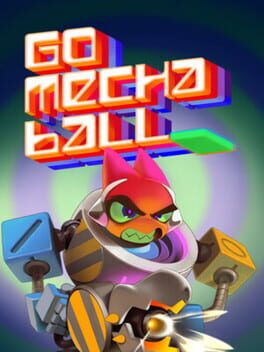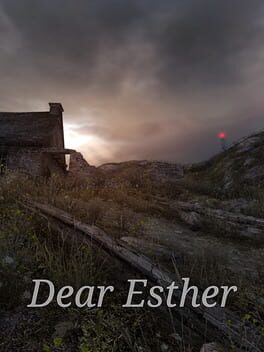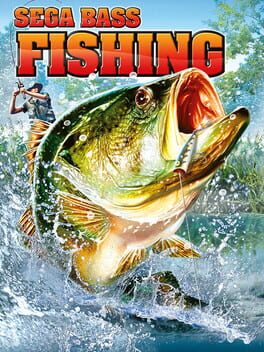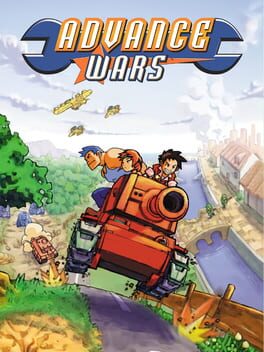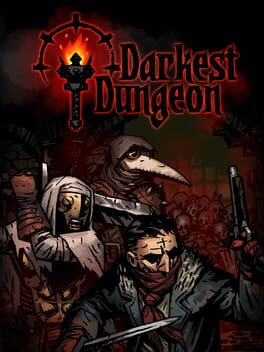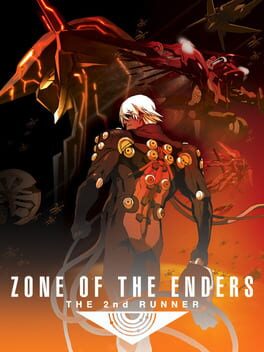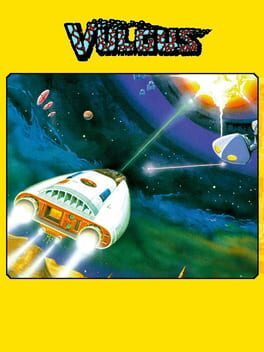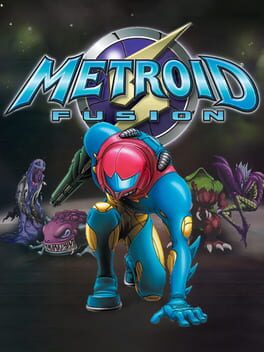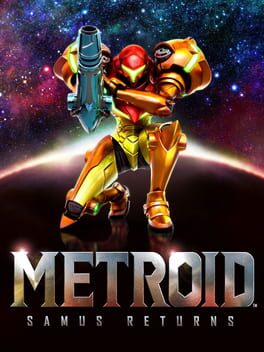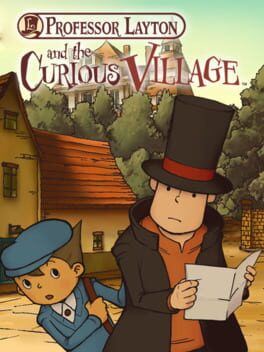TofuTitan
40 Reviews liked by TofuTitan
Hi-Fi Rush
2023
Go Mecha Ball
2024
Dear Esther
2012
The landscapes are the star of the show. The stunning environments slowly unravel and become more and more interesting as you navigate through the game. The game's symbolism is littered all over the island with breadcrumbs for the player who takes the time to stop and zoom in. The island itself changes meaning throughout the game, but the abstract nature of the story leads to many of the clues you discover becoming a dead end in a way that I'm conflicted about. As background ambiance the story didn't need much scrutiny early on, but as it becomes more prominent it also becomes more heavy handed, and it's easier to fixate on the flaws in the writing. I do not like the story or necessarily how it was told, which is unfortunate because you can tell it benefits from multiple playthroughs, but I have no desire to go back and fill in the gaps that I missed.
The game makes great use out of limiting the player to just walking, listening, and looking in order to create the atmosphere of helplessness and lack of control. The game teases the player with exploration but is actually quite linear, and unfortunately there were a couple of chapters I circled back to the beginning without really understanding where to go next. But you can't get too mad at a game that tried something and took some chances and did something very new and refreshing at the time.
The game makes great use out of limiting the player to just walking, listening, and looking in order to create the atmosphere of helplessness and lack of control. The game teases the player with exploration but is actually quite linear, and unfortunately there were a couple of chapters I circled back to the beginning without really understanding where to go next. But you can't get too mad at a game that tried something and took some chances and did something very new and refreshing at the time.
Sega Bass Fishing
1997
Sega bass fishing is the best game that redefined the sega bass fishing genre. Sega bass fishing games like sega bass fishing 2 have been trying to catch up for years but to no avail. Sega bass fishing is the quintessential game that was ever made by sega, so much so that even their other games have failed to top it. Sonic adventure, persona 5, and yakuza 0 have not even come close to this level of expertise. It has been so highly regarded that it got the company’s official mascot: ‘that bass from the cover of sega bass fishing’. That bass is a universal symbol that shows love, hope, and above all else: bass. And you can’t spell bass without the letter A. And A is also a letter that reminds me of the word perfect, and that describes sega bass fishing.
Sega bass fishing begins with your protagonist: ‘the guy from sega bass fishing’. As the game goes on this man learns the most valuable lesson that can ever be taught in life: how to fish for bass. Sega bass fishing gives time for the characters to really think about who they are and challenge themselves to their limit, by fishing for bass. They get more and more bait as the game goes along which helps them in their effort to discover themselves and fish for bass.
Gameplay is what makes this game the perfect game in the sega bass fishing genre. For the absolutely perfect and problem ridden Dreamcast version, you have the fishing rod which is the best controller to ever grace mankind. It even contains some of the best motion controls to ever grace the sega bass fishing experience. Even with a normal controller the game is still just as perfect as ever because nothing can change how perfect sega bass fishing truly is. It is after all, the best sega bass fishing game.
Bass, Bass, Lots of Bass, Can’t get enough of the Bass, Bass everywhere, Bass in your walls, BASS
Sega bass fishing begins with your protagonist: ‘the guy from sega bass fishing’. As the game goes on this man learns the most valuable lesson that can ever be taught in life: how to fish for bass. Sega bass fishing gives time for the characters to really think about who they are and challenge themselves to their limit, by fishing for bass. They get more and more bait as the game goes along which helps them in their effort to discover themselves and fish for bass.
Gameplay is what makes this game the perfect game in the sega bass fishing genre. For the absolutely perfect and problem ridden Dreamcast version, you have the fishing rod which is the best controller to ever grace mankind. It even contains some of the best motion controls to ever grace the sega bass fishing experience. Even with a normal controller the game is still just as perfect as ever because nothing can change how perfect sega bass fishing truly is. It is after all, the best sega bass fishing game.
Bass, Bass, Lots of Bass, Can’t get enough of the Bass, Bass everywhere, Bass in your walls, BASS
Advance Wars
2001
Darkest Dungeon
2015
Difficult and rewarding and a big ol time investment. Top tier aesthetic and atmosphere, great narration, and tense dungeon crawling. The characters are cool and there's plenty of customization to enjoy. I also enjoyed the moddable anime skins a fair bit. Problems being that it goes on a tad too long, a lot of the bosses are reskins, and a lot of the RNG is just frustrating. I wish I had played on Radiant. Also leper is based.
Planet of Lana
2023
Zone of the Enders: The Twin Snakes.
This game might be the poster child for the law of equivalent exchange. Virtually everything that was bad or half-baked in the original has been fixed, but a lot of what's been added is subpar.
Two years may not seem like a lot, and in the world of video games, it isn't. Even then, that was all the time it took for Konami to actually take Zone of the Enders into the sixth generation; the previous entry into the series came out a little over a year into the PS2's lifespan, but it looked like the first Armored Core. It probably wouldn't be hard to trick someone who wasn't aware of the franchise into believing that Zone of the Enders was on the same console as Metal Gear Solid rather than Sons of Liberty. The first thing you'll notice about 2nd Runner is the massive facelift. The game looks stunning. Some choppy faux slow-motion and ghosting frames distract a little from the polish on display here, but these are just occasional strange editing choices more than anything else. Gonzo, Anime Roman, and DR Movie all contribute their work for the hand-drawn cutscenes, which were an inspired decision over the rather mediocre 3DCG shots to be found in the original.
Jehuty also feels significantly less like a flying jalopy and more like the magical mecha that the series has claimed it to be, with a complete overhaul of the controls and battle mechanics. Now introduced to the mix is an increased emphasis on environmental combat, encouraging the player to slap enemies into walls, floors, and ceilings to deal bonus damage and lock them into stun states. Dash missiles now track dozens upon dozens of enemies at once, giving you the tools to instantly mow down hordes of Mosquito drones. Grabbing an enemy still gives you the option to chuck them into terrain, but now also lets you swing them around as weapons and use them as meat shields. Combat is fast, intense, and swarm-heavy; a far cry from the dash-slash dash-slash dash-slash loops of old.
The open-world backtracking segments are out, now replaced by linear level progression. This was one of the more interesting aspects of the original game, even though it could have used some tweaking; it's all been thrown out in favor of some atrocious objective checklisting. If you thought the backtracking felt bad before, you haven't felt the padding in 2nd Runner. Fly through a canyon to get to blow up a generator, fly back through the canyon with all of the enemies respawned, fly through an identical-but-mirrored canyon to blow up a second generator, and then fly back through the second canyon with all of the enemies respawned. This exact same pattern gets repeated about two more times in the game's six-hour runtime, just replacing "canyon" with "basement", or "slightly different basement". You get two escort missions, and they're both awful. One boss fight requires you to do nothing but parry sword swings and then grab the other frame over the course of about five minutes. Another just asks you to throw rebar. A third asks you to grab a steel plate and use it as a shield. In case you can't figure these out on your own, ADA will helpfully interrupt in the middle of combat to tell you exactly what you need to do to progress. Sometimes she'll interrupt while you're actively doing the thing she's telling you to do.
What's clear is that the heavier emphasis on setpieces takes precedence over all else, to mixed results. The massive battlefield sequence is impressive in terms of scale, though marred somewhat by the extremely limited render distance and endless, rapid-fire ally barks begging to be hit with GEYSER. Unloading the VECTOR CANNON (all caps) into an airship's engine for fifteen straight seconds is cool once, and then you have to do it four more times without dying to the anti-air defenses or you have to start over from the first ship. Inhert turning the lights out in his second phase and forcing you to rely on ADA's verbal guidance is awesome, but the fight goes for nearly five extra minutes even though it stops being interesting after the first two cycles. Bosses keep doing that trick where they have a seemingly-absurd amount of health, but you only need to hit them a couple of times before the game automatically ends the fight.
The translation is somehow even worse than the original. It's shocking how bad it is. Like, it's distractingly bad. There are more than a few lines in here where I knew they weren't written by native English speakers because of how rudimentary some of the grammatical errors are. One character, while establishing a timeline, drops the phrase "half year ago" to start their sentence. "Half year ago". Not "half a year ago", or "a half-year ago", or even the stiffer "one half-year ago". Half year ago. You cannot write something this blatantly wrong unless English isn't your first language, or you're in first grade.
A little digging through the credits revealed the answer: while noted Kojima yes-man Scott Dolph — perhaps best known for filling in on the later Metal Gear Solid games in place of Jeremy Blaustein after the latter delivered one of the best translations ever written and was fired by Kojima for not adhering literally enough to the script, but I digress — is here as a translation assistant, the bulk of the work seems to have fallen on the Japan-based translation company SPROUT. SPROUT proudly advertises that they can fully translate a work from Japanese into English in as little as three days, though they admit averaging out at five. It shows. While Zone of the Enders had a rough translation, 2nd Runner's is often so bad that I struggled to understand what some of the characters were even attempting to say. Even then, Ken and Nohman's actors really seem like they're trying to make these lines work, and they kind of save the dub by themselves.
It's certainly a more technically impressive game — faster, bigger, prettier — and yet it feels directionless. 2nd Runner is a game that seems like it's trying to cram everything into a single package, and it winds up making its constituent parts feel half-baked. I'm watching Buster Keaton plugging the holes in his boat with his fingers; for everyone one issue that Konami addressed, they introduced another.
Without the angel effect of including a bundled Metal Gear Solid demo disc, 2nd Runner released to poor sales and resulted in the halting of all momentum the series had going. With the potential for a third game now firmly dead and buried, it's a shame that we may never get to see this series fully realized.
This game might be the poster child for the law of equivalent exchange. Virtually everything that was bad or half-baked in the original has been fixed, but a lot of what's been added is subpar.
Two years may not seem like a lot, and in the world of video games, it isn't. Even then, that was all the time it took for Konami to actually take Zone of the Enders into the sixth generation; the previous entry into the series came out a little over a year into the PS2's lifespan, but it looked like the first Armored Core. It probably wouldn't be hard to trick someone who wasn't aware of the franchise into believing that Zone of the Enders was on the same console as Metal Gear Solid rather than Sons of Liberty. The first thing you'll notice about 2nd Runner is the massive facelift. The game looks stunning. Some choppy faux slow-motion and ghosting frames distract a little from the polish on display here, but these are just occasional strange editing choices more than anything else. Gonzo, Anime Roman, and DR Movie all contribute their work for the hand-drawn cutscenes, which were an inspired decision over the rather mediocre 3DCG shots to be found in the original.
Jehuty also feels significantly less like a flying jalopy and more like the magical mecha that the series has claimed it to be, with a complete overhaul of the controls and battle mechanics. Now introduced to the mix is an increased emphasis on environmental combat, encouraging the player to slap enemies into walls, floors, and ceilings to deal bonus damage and lock them into stun states. Dash missiles now track dozens upon dozens of enemies at once, giving you the tools to instantly mow down hordes of Mosquito drones. Grabbing an enemy still gives you the option to chuck them into terrain, but now also lets you swing them around as weapons and use them as meat shields. Combat is fast, intense, and swarm-heavy; a far cry from the dash-slash dash-slash dash-slash loops of old.
The open-world backtracking segments are out, now replaced by linear level progression. This was one of the more interesting aspects of the original game, even though it could have used some tweaking; it's all been thrown out in favor of some atrocious objective checklisting. If you thought the backtracking felt bad before, you haven't felt the padding in 2nd Runner. Fly through a canyon to get to blow up a generator, fly back through the canyon with all of the enemies respawned, fly through an identical-but-mirrored canyon to blow up a second generator, and then fly back through the second canyon with all of the enemies respawned. This exact same pattern gets repeated about two more times in the game's six-hour runtime, just replacing "canyon" with "basement", or "slightly different basement". You get two escort missions, and they're both awful. One boss fight requires you to do nothing but parry sword swings and then grab the other frame over the course of about five minutes. Another just asks you to throw rebar. A third asks you to grab a steel plate and use it as a shield. In case you can't figure these out on your own, ADA will helpfully interrupt in the middle of combat to tell you exactly what you need to do to progress. Sometimes she'll interrupt while you're actively doing the thing she's telling you to do.
What's clear is that the heavier emphasis on setpieces takes precedence over all else, to mixed results. The massive battlefield sequence is impressive in terms of scale, though marred somewhat by the extremely limited render distance and endless, rapid-fire ally barks begging to be hit with GEYSER. Unloading the VECTOR CANNON (all caps) into an airship's engine for fifteen straight seconds is cool once, and then you have to do it four more times without dying to the anti-air defenses or you have to start over from the first ship. Inhert turning the lights out in his second phase and forcing you to rely on ADA's verbal guidance is awesome, but the fight goes for nearly five extra minutes even though it stops being interesting after the first two cycles. Bosses keep doing that trick where they have a seemingly-absurd amount of health, but you only need to hit them a couple of times before the game automatically ends the fight.
The translation is somehow even worse than the original. It's shocking how bad it is. Like, it's distractingly bad. There are more than a few lines in here where I knew they weren't written by native English speakers because of how rudimentary some of the grammatical errors are. One character, while establishing a timeline, drops the phrase "half year ago" to start their sentence. "Half year ago". Not "half a year ago", or "a half-year ago", or even the stiffer "one half-year ago". Half year ago. You cannot write something this blatantly wrong unless English isn't your first language, or you're in first grade.
A little digging through the credits revealed the answer: while noted Kojima yes-man Scott Dolph — perhaps best known for filling in on the later Metal Gear Solid games in place of Jeremy Blaustein after the latter delivered one of the best translations ever written and was fired by Kojima for not adhering literally enough to the script, but I digress — is here as a translation assistant, the bulk of the work seems to have fallen on the Japan-based translation company SPROUT. SPROUT proudly advertises that they can fully translate a work from Japanese into English in as little as three days, though they admit averaging out at five. It shows. While Zone of the Enders had a rough translation, 2nd Runner's is often so bad that I struggled to understand what some of the characters were even attempting to say. Even then, Ken and Nohman's actors really seem like they're trying to make these lines work, and they kind of save the dub by themselves.
It's certainly a more technically impressive game — faster, bigger, prettier — and yet it feels directionless. 2nd Runner is a game that seems like it's trying to cram everything into a single package, and it winds up making its constituent parts feel half-baked. I'm watching Buster Keaton plugging the holes in his boat with his fingers; for everyone one issue that Konami addressed, they introduced another.
Without the angel effect of including a bundled Metal Gear Solid demo disc, 2nd Runner released to poor sales and resulted in the halting of all momentum the series had going. With the potential for a third game now firmly dead and buried, it's a shame that we may never get to see this series fully realized.
Vulgus
1984
I cannot get over how ROUMBD the ship you control in this game is, look at that chonky boy. Very visualy enjoyable
This game has all the charm and grace of a developed who has stumbled into the SHUMP genre several years late and reckons they know what the genre needs. The facinating little descions like said ROUMBD ship being a clear indicator for the hitbox. Also taking literal interpritations of abstract insect shaped enemies of it's contemporaries like Galaga, resulting in giant bug-shaped metal spaceships.
It's super charming and gives a basic SHUMP a little of it's own identity in this early chapter of Capcom's life.
~ Muzu
This game has all the charm and grace of a developed who has stumbled into the SHUMP genre several years late and reckons they know what the genre needs. The facinating little descions like said ROUMBD ship being a clear indicator for the hitbox. Also taking literal interpritations of abstract insect shaped enemies of it's contemporaries like Galaga, resulting in giant bug-shaped metal spaceships.
It's super charming and gives a basic SHUMP a little of it's own identity in this early chapter of Capcom's life.
~ Muzu
Metroid Fusion
2002
While I’d still give a slight edge to Castlevania: Aria of Sorrow for the award of ‘best Metroidvania on the Gameboy Advance’, Metroid Fusion is an extremely close second.
It’s true that this is a more linear, story-based affair, but it still employs a winding structure with plenty of secrets and things to find. In fact, I don’t think the linearity is this game’s biggest drawback. I found that they lean a tad too hard into using invisible blocks as a main funnel for progression. Get ready to use that morph ball bomb.
But that’s really my only complaint, as this is a buttery smooth and beautiful game with excellent pacing and tight controls. It’s challenging but not overly frustrating, easy to navigate without being simplistic, and atmospheric & creepy without being a retread of what came before. A perfect mobile entry that would have been considered one of the greatest SNES titles ever had it been released on that platform, and that should likewise be considered one of the best games on the GBA.
It also gave me an even greater appreciation for Metroid Dread, which is very much a sequel and follow-up to this game, expanding and improving on ideas introduced here without forgetting what made this one work.
It’s true that this is a more linear, story-based affair, but it still employs a winding structure with plenty of secrets and things to find. In fact, I don’t think the linearity is this game’s biggest drawback. I found that they lean a tad too hard into using invisible blocks as a main funnel for progression. Get ready to use that morph ball bomb.
But that’s really my only complaint, as this is a buttery smooth and beautiful game with excellent pacing and tight controls. It’s challenging but not overly frustrating, easy to navigate without being simplistic, and atmospheric & creepy without being a retread of what came before. A perfect mobile entry that would have been considered one of the greatest SNES titles ever had it been released on that platform, and that should likewise be considered one of the best games on the GBA.
It also gave me an even greater appreciation for Metroid Dread, which is very much a sequel and follow-up to this game, expanding and improving on ideas introduced here without forgetting what made this one work.
DISCLAIMER: this review will spoil both the original game and official remake for Metroid II. If you're unfamiliar with how either play out, I'd strongly recommend playing the original first, and then the remake.
It's pretty easy to separate remakes into two distinct categories: those that are supplementary to the original (Final Fantasy VII Remake, Twin Snakes) and those that are replacements to the original (Demon's Souls, Shadow of the Colossus). I tend to be more apprehensive towards the latter, but that's not to say it can't be done well. With the right team at the helm (usually including the original designers) it's possible to create something truly special that polishes the original's shortcomings and reinvents what it represented without the constraints of it's era. I haven't played the Resident Evil Remake, but from what I'm told it's the best example of a game that repaints the original while still capturing the spirit and soul present in the PlayStation version.
Having said that, most replacement remakes tend to stumble over themselves and create a product that doesn't really do justice to the source material in any way. Samus Returns is no different.
Looking at it in a vaccum, it's a standard Metroid adventure. Many areas tend to blend into one another and the stop-and-start nature of combat got old quickly, but a lot of it is pretty familiar and comfortable if you're familiar with the series. Looking at it in the context of the source material is where it really starts to fall apart in my eyes.
Much of the charm of Return of Samus was how cramped and stressful the whole journey was. The first game presented a complete mirror of the Zelda series that felt both swashbuckling and mysterious with it's alien world while still feeling like an adventure. It's sequel, by comparison, wasn't nearly as pleasant and leaned more into a psudo-horror atmosphere. You were tasked with exterminating an entire alien race, and the game quite fittingly was upsetting to trek through. Traversing the caves of SR388 always felt tense, the limited visibility meant you never knew what was around every corner, and the Metroid encounters were a mad scramble to stay alive more than anything. Nothing about it felt triumphant. While repetitive towards the end, each subsequent Metroid encounter would eventually feel as if you're just filling a quota, like you're just clocking in for a drab job only to slog through the day and clock out. It was interesting to see Samus not only get tasked with commiting genocide on an alien planet, but for it to be presented without any of the energy you might expect. And yet, in one final subversive gesture, it doesn't end on a sour note. Samus comes across a Metroid hatchling, and instead of greeting it with hostility, she changes her tone and takes it back to the federation. One would expect a game like this to end in bombast, yet the player gets a moment of quiet relief. The mission was over, there was no need for any more violence or conflict. The galaxy was at peace.
Presumably in an effort to modernize the game and have it fall more in line with other popular titles, the official Metroid II remake manages to sand down nearly all distinct elements of the GameBoy classic and create a game that hardly resembles that which it's trying to replicate. It seems as though every change made in Samus Returns was made to make everything bigger, better, and louder. In place of pitch black dour caves you have brightly lit neon crystal formations, enemies are more aggressive promoting the use of your new parry action to make combat feel more "engaging", the list of changes is pretty massive and it'd be boring to just list them all. Instead, I think it'd be valuable to mention how these changes all fit together. In other words, each step in the remake progress was logical.
Newer games are expected to be bigger so they made the map bigger, and by extension added an actual map to track your progress. The lack of any map in the original is a big sticking point for many, but what makes it work is how you only needed to keep a small chunk of the map in your mind at any time, once you finish an area you can move on and never look back. It created a dizzying feeling while exploring, but the excellent layout and sprite designs guaranteed the player should never be lost for too long. Now that the world is massive, it'd be ridiculous to force the player to track it all in their brain, so the map makes some amount of sense. It just comes at a cost of the rewarding feeling players got by picking apart the world completely on their own.
More pressingly, the huge world greatly effects the thrill of hunting Metroids. In the original, not only could they spring up at any moment, but encounters never felt gamey for lack of a better term. Fights could take place in sand pits, cramped caves, or anywhere for that matter. They never felt like video game combat arenas, so the whole journey felt natural. The heart sinking feeling of finding a Metroid never lost it's spark since you never knew when they'd appear. Naturally, SR opts into a dedicated radar that beeps like a metal detector as you approach a Metroid removing the thrill of discovery, and every fight takes place in one of a handful of deliberately designed sterile arenas.
None of these elements stand up to the scrappy yet elegant design of the original, but the biggest blunder has got to be the overall tone and feel of the game. As I mentioned earlier, hunting Metroids in the original rarely felt fun. It was a nerve-wracking crawl through claustrophobic caves and generally just felt miserable. The remake instead wants the player to feel as cool as posible while shredding this world to pieces. Samus's parry is the most immediate example of this cheap pop of energy, but the series first of Cutscenes That Wrestle Control From The Player to Show You Something Sick Nasty From Samus is the most obnoxious. Walking into an unknown area and having control taken from me is the quickest way to let me know I'm in absolutely no danger, and anything that happens is bound to be awesome. Because nothing screams genocide like Samus backflipping off of an alien as she shoots it to death.
Not even the beautiful ending leaves unscathed, what used to be a calm reflective escape to your ship is now an action packed sprint through every basic enemy in the game's roster followed by the most embarrassing form of fanservice in the game, a brand new final boss against the most iconic villain of the series, Ridley. Of course the game with the most subversive ending had to end with bombast, that's what they always intended for with the classic violence free ending right?
The cherry on top is the baby Metroid itself, once a symbol of hope to strategically shift the tone before the end is now relegated to a key for item collection right after the Queen Metroid encounter, but before the final boss, leading to the most frustrating item cleanup in the series.
I recognize most of this write up has been me whining about why the remake fails when stacked up against the original, and while that may seem sloppy and unfair, it's only natural given the fact that they share a title. Samus Returns was meant to be a cozy return to form for the series, and in many ways it accomplished that goal. It's nice to see a series come back in a familiar setting after lying dormant for a decade, but that's never what the original was meant to be. It was a brand new adventure that didn't have to follow an arbitrary ruleset laid in place by the series legacy, it was an interesting sequel to a groundbreaking title and nothing else. These days people don't look fondly on Return of Samus, so this could have been a perfect opportunity for Mercury Steam to show the world what made the original so special in their own Resident Evil Remake moment. Instead what we got was a safe installment that proudly wears the series on its sleeve, but holds no reverence for the game that bore the title of Metroid II.
It's pretty easy to separate remakes into two distinct categories: those that are supplementary to the original (Final Fantasy VII Remake, Twin Snakes) and those that are replacements to the original (Demon's Souls, Shadow of the Colossus). I tend to be more apprehensive towards the latter, but that's not to say it can't be done well. With the right team at the helm (usually including the original designers) it's possible to create something truly special that polishes the original's shortcomings and reinvents what it represented without the constraints of it's era. I haven't played the Resident Evil Remake, but from what I'm told it's the best example of a game that repaints the original while still capturing the spirit and soul present in the PlayStation version.
Having said that, most replacement remakes tend to stumble over themselves and create a product that doesn't really do justice to the source material in any way. Samus Returns is no different.
Looking at it in a vaccum, it's a standard Metroid adventure. Many areas tend to blend into one another and the stop-and-start nature of combat got old quickly, but a lot of it is pretty familiar and comfortable if you're familiar with the series. Looking at it in the context of the source material is where it really starts to fall apart in my eyes.
Much of the charm of Return of Samus was how cramped and stressful the whole journey was. The first game presented a complete mirror of the Zelda series that felt both swashbuckling and mysterious with it's alien world while still feeling like an adventure. It's sequel, by comparison, wasn't nearly as pleasant and leaned more into a psudo-horror atmosphere. You were tasked with exterminating an entire alien race, and the game quite fittingly was upsetting to trek through. Traversing the caves of SR388 always felt tense, the limited visibility meant you never knew what was around every corner, and the Metroid encounters were a mad scramble to stay alive more than anything. Nothing about it felt triumphant. While repetitive towards the end, each subsequent Metroid encounter would eventually feel as if you're just filling a quota, like you're just clocking in for a drab job only to slog through the day and clock out. It was interesting to see Samus not only get tasked with commiting genocide on an alien planet, but for it to be presented without any of the energy you might expect. And yet, in one final subversive gesture, it doesn't end on a sour note. Samus comes across a Metroid hatchling, and instead of greeting it with hostility, she changes her tone and takes it back to the federation. One would expect a game like this to end in bombast, yet the player gets a moment of quiet relief. The mission was over, there was no need for any more violence or conflict. The galaxy was at peace.
Presumably in an effort to modernize the game and have it fall more in line with other popular titles, the official Metroid II remake manages to sand down nearly all distinct elements of the GameBoy classic and create a game that hardly resembles that which it's trying to replicate. It seems as though every change made in Samus Returns was made to make everything bigger, better, and louder. In place of pitch black dour caves you have brightly lit neon crystal formations, enemies are more aggressive promoting the use of your new parry action to make combat feel more "engaging", the list of changes is pretty massive and it'd be boring to just list them all. Instead, I think it'd be valuable to mention how these changes all fit together. In other words, each step in the remake progress was logical.
Newer games are expected to be bigger so they made the map bigger, and by extension added an actual map to track your progress. The lack of any map in the original is a big sticking point for many, but what makes it work is how you only needed to keep a small chunk of the map in your mind at any time, once you finish an area you can move on and never look back. It created a dizzying feeling while exploring, but the excellent layout and sprite designs guaranteed the player should never be lost for too long. Now that the world is massive, it'd be ridiculous to force the player to track it all in their brain, so the map makes some amount of sense. It just comes at a cost of the rewarding feeling players got by picking apart the world completely on their own.
More pressingly, the huge world greatly effects the thrill of hunting Metroids. In the original, not only could they spring up at any moment, but encounters never felt gamey for lack of a better term. Fights could take place in sand pits, cramped caves, or anywhere for that matter. They never felt like video game combat arenas, so the whole journey felt natural. The heart sinking feeling of finding a Metroid never lost it's spark since you never knew when they'd appear. Naturally, SR opts into a dedicated radar that beeps like a metal detector as you approach a Metroid removing the thrill of discovery, and every fight takes place in one of a handful of deliberately designed sterile arenas.
None of these elements stand up to the scrappy yet elegant design of the original, but the biggest blunder has got to be the overall tone and feel of the game. As I mentioned earlier, hunting Metroids in the original rarely felt fun. It was a nerve-wracking crawl through claustrophobic caves and generally just felt miserable. The remake instead wants the player to feel as cool as posible while shredding this world to pieces. Samus's parry is the most immediate example of this cheap pop of energy, but the series first of Cutscenes That Wrestle Control From The Player to Show You Something Sick Nasty From Samus is the most obnoxious. Walking into an unknown area and having control taken from me is the quickest way to let me know I'm in absolutely no danger, and anything that happens is bound to be awesome. Because nothing screams genocide like Samus backflipping off of an alien as she shoots it to death.
Not even the beautiful ending leaves unscathed, what used to be a calm reflective escape to your ship is now an action packed sprint through every basic enemy in the game's roster followed by the most embarrassing form of fanservice in the game, a brand new final boss against the most iconic villain of the series, Ridley. Of course the game with the most subversive ending had to end with bombast, that's what they always intended for with the classic violence free ending right?
The cherry on top is the baby Metroid itself, once a symbol of hope to strategically shift the tone before the end is now relegated to a key for item collection right after the Queen Metroid encounter, but before the final boss, leading to the most frustrating item cleanup in the series.
I recognize most of this write up has been me whining about why the remake fails when stacked up against the original, and while that may seem sloppy and unfair, it's only natural given the fact that they share a title. Samus Returns was meant to be a cozy return to form for the series, and in many ways it accomplished that goal. It's nice to see a series come back in a familiar setting after lying dormant for a decade, but that's never what the original was meant to be. It was a brand new adventure that didn't have to follow an arbitrary ruleset laid in place by the series legacy, it was an interesting sequel to a groundbreaking title and nothing else. These days people don't look fondly on Return of Samus, so this could have been a perfect opportunity for Mercury Steam to show the world what made the original so special in their own Resident Evil Remake moment. Instead what we got was a safe installment that proudly wears the series on its sleeve, but holds no reverence for the game that bore the title of Metroid II.
Wattam
2019
By far the most wholesome piece of media ever concocted. Lovely aesthetic, fun happy little inanimate objects. Cheery upbeat music and sounds of laughter to force a smile out of you. The tasks are incredibly simple so any difficulty comes from trying to remember that the camera is controlled by the triggers and not the analog stick. The movement can be too clunky and slow and while this may have just been my PS4 being old or something, the performance was terrible which got very annoying. Thankfully the problems didn't have much time to set in since the game is very short. It was a nice experience with a surprisingly beautiful ending. It's just a shame the performance issues couldn't be ironed out before release.
Journey
2012
reviewing any piece of art often requires some amount of subjectivity from the writer. our interactions with art are often influenced by our personal experiences in life, and especially in a medium as variable as video games, many people will walk out of a game with something different to say. as an example, someone with an appreciation for deep character studies may find the plot in the last of us to be it's most engaging element, while someone who enjoys stealth games may like the combat more than anything else. i don't believe there's anything inherently wrong with this approach to criticism, it's just how we're wired as human beings. as we consume media we pull from our past experiences and our immediate impressions come naturally. so when a game like journey comes along with such a singular focus, it's no surprise that people feel strongly one way or another when talking about it. as the name suggests, it's more about the journey than the destination. in fact, that's really all there is to it. there's no immediate conflict, there's nothing to move a plot along, and there's barely anything resembling a story. there's subtle bits of world building sprinkled throughout, but nothing to pull you away from your objective. the game has often been heralded as a flawless work of game design mastery, while also frequently being described as boring or just another walking simulator. after hearing the discourse take fold for years, i knew i had to try it out for myself. having finally played it in one straight shot and feeling a wide range of emotions while i played, i can comfortably say i'm at least happy i played it. while it wasn't quite the thought provoking game i led myself to believe, i don't think it necessarily needed to be. the level of comfort i felt on the way to the end trounced any other questionable feelings i may have felt from the offset. i don't believe i have the authoritative right to call journey a perfect video game, but i can say with confidence that it's a game that everyone should play.
Its a game that oozes charm from every pore. Arguably its almost cheating having puzzles so disconnected from everything else, a popurri of riddles and problems you would find in a "1001 puzzles for you" book in a hudson news at the airport but its so ingrained into the identity of the games that I cant even imagine it being otherwise
Immortality
2022
Fabulous. Inventive, intriguing, surprisingly addictive. Not only does Immortality feel like one of the more innovative FMV games in terms of play input, but the quality of the video itself can't be overstated. Excellent period appropriate sets and attires, films that feel real and flawed in their pretention, acting performances (and performances within performances) that progress over time and evolve with the changing chemistry of their respective timelines. It really is a special endeavor.

